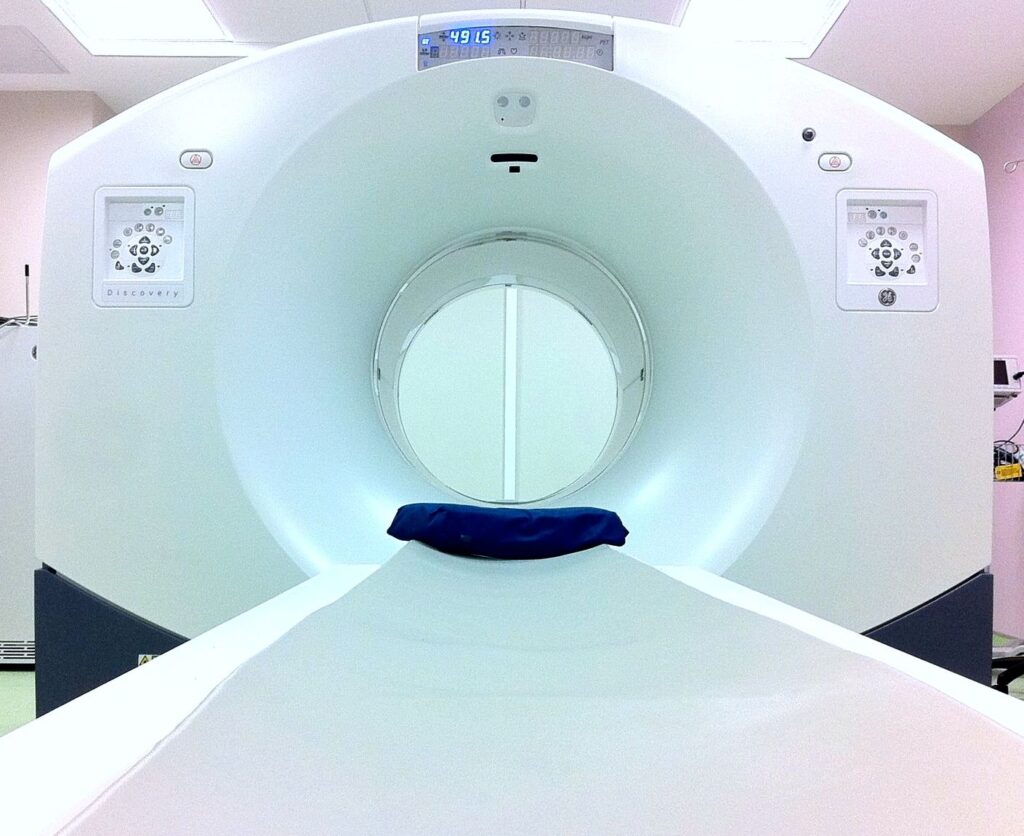Positron Emission Tomography Computed Tomography

Positron Emission Computed Tomography (PET-CT) stands as a revolutionary imaging technique that merges the functional insights of Positron Emission Tomography (PET) with the anatomical details provided by Computed Tomography (CT). This powerful combination offers unparalleled diagnostic capabilities, aiding in the precise localization and characterization of abnormalities. In Delhi, PET-CT facilities are at the forefront of diagnostic imaging, providing advanced healthcare solutions to patients across the region.
Positron Emission Computed Tomography (PET-CT):
PET-CT imaging involves the administration of a radioactive tracer, which emits positrons. As these positrons encounter electrons in the body tissues, they produce gamma rays that are detected by the PET scanner. Simultaneously, the CT scanner acquires detailed anatomical images of the same region. By merging PET and CT data, PET-CT provides comprehensive information about both metabolic activity and anatomical structures, offering valuable insights into disease processes.
PET-CT in Delhi:
Delhi hosts several specialized medical centers and hospitals equipped with state-of-the-art PET-CT scanners and staffed by experienced radiologists, nuclear medicine physicians, and technologists. These facilities offer comprehensive PET-CT imaging services, catering to a wide range of diagnostic needs. Patients in Delhi benefit from convenient access to PET-CT centers located across the city, ensuring timely diagnosis and personalized treatment planning.
Significance of PET-CT:
- Cancer Diagnosis and Staging: PET-CT is widely utilized in oncology for cancer diagnosis, staging, and treatment monitoring. By visualizing metabolic activity within tumors and assessing their anatomical extent, PET-CT helps oncologists accurately stage cancers, plan treatment strategies, and evaluate treatment response.
- Cardiac Imaging: PET-CT plays a crucial role in cardiac imaging, allowing cardiologists to assess myocardial perfusion, myocardial viability, and cardiac function. It aids in the diagnosis of coronary artery disease, evaluation of myocardial ischemia, and determination of the prognosis of patients with heart disease.
- Neurological Evaluation: PET-CT imaging is valuable in the evaluation of neurological disorders such as Alzheimer’s disease, Parkinson’s disease, epilepsy, and brain tumors. It provides insights into brain metabolism and helps neurologists localize abnormalities, guiding treatment planning and monitoring disease progression.
Accessibility and Quality Assurance:
PET-CT centers in Delhi adhere to stringent quality assurance protocols to ensure the accuracy and reliability of imaging results. They utilize advanced PET-CT scanners and imaging techniques to deliver high-quality diagnostic services to patients. Moreover, these centers prioritize patient comfort, safety, and satisfaction, providing a supportive environment for individuals undergoing PET-CT imaging procedures.
Collaborative Patient Care:
PET-CT centers in Delhi adopt a collaborative approach to patient care, working closely with referring physicians and specialists to ensure comprehensive evaluation and management of medical conditions. They provide multidisciplinary consultations, interdisciplinary collaboration, and personalized treatment recommendations based on PET-CT imaging findings.
In conclusion, PET-CT imaging represents a significant advancement in diagnostic radiology, offering comprehensive insights into disease processes. In Delhi, PET-CT centers provide advanced imaging services, equipped with state-of-the-art technology and staffed by skilled professionals. With their commitment to quality, accessibility, and patient-centric care, these centers contribute significantly to improving patient outcomes and enhancing the overall quality of healthcare in Delhi.
